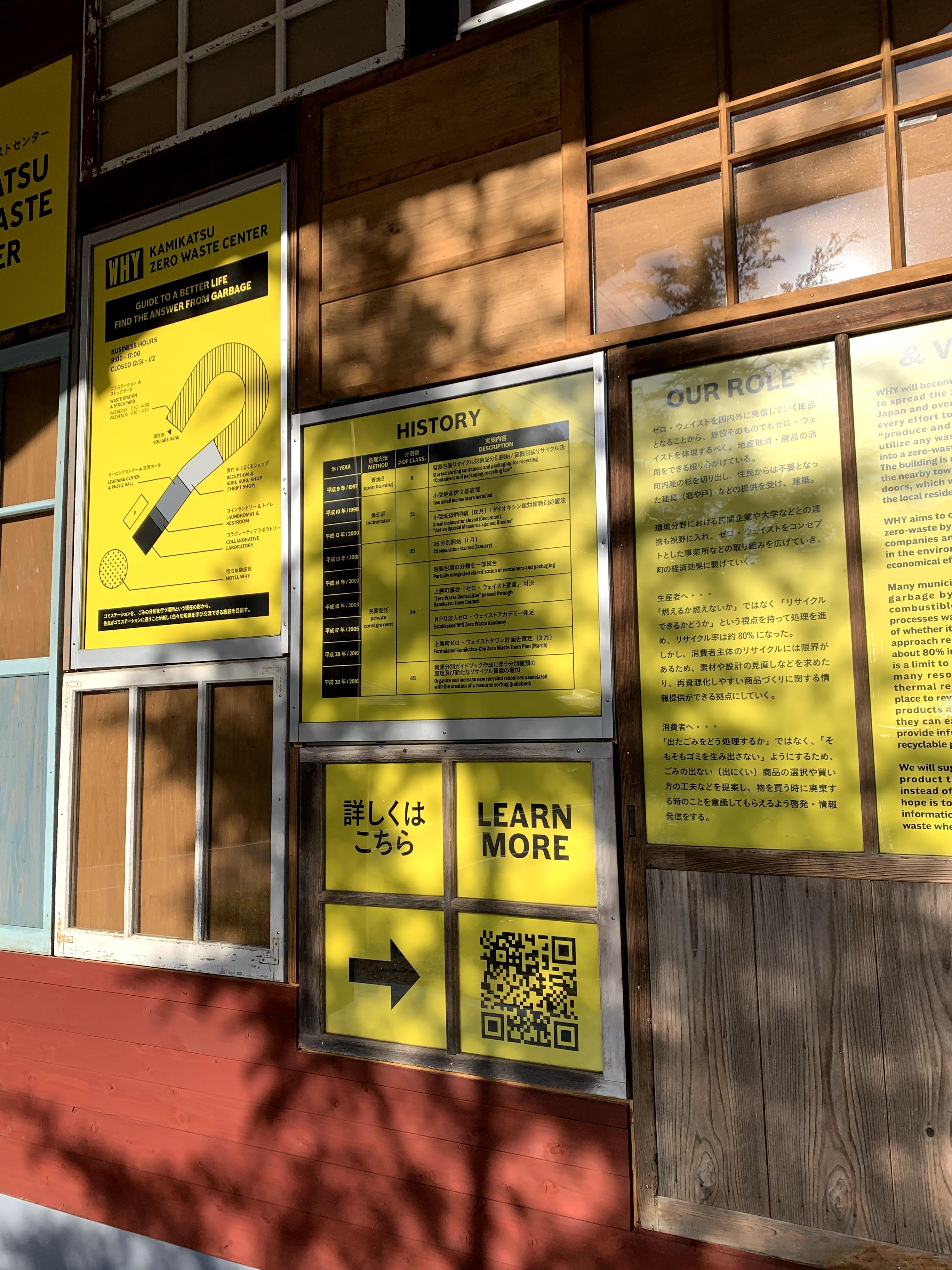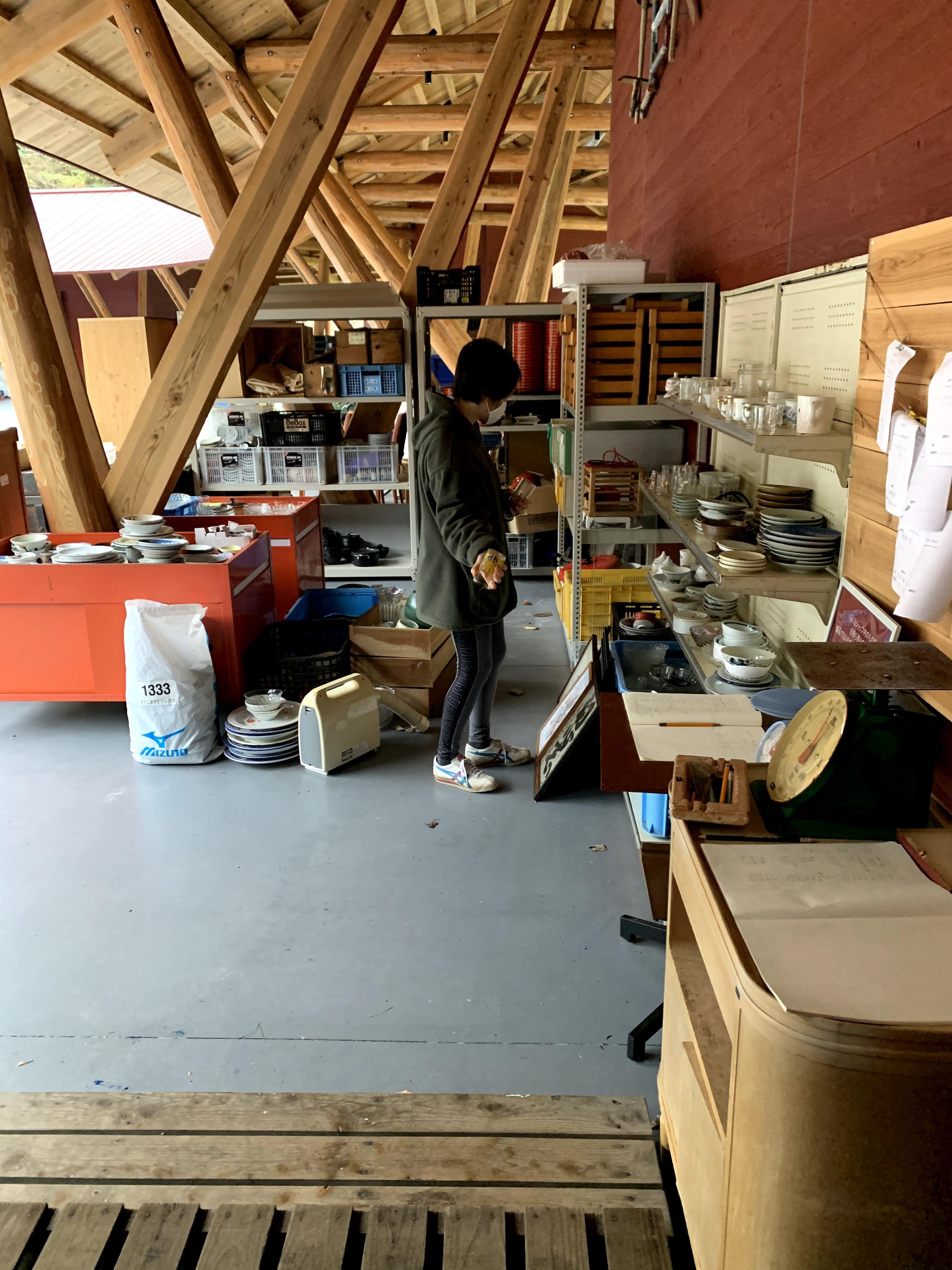Nagasaki Foundation for the promotion of peace・Nagasaki University
Through this service-learning program, I was able to not only visit the remains of the atomic bombing in Nagasaki, but also learn about the history and culture of Nagasaki, which helped me understand the reasons why Nagasaki became the site of the atomic bombing. In the past, I used to feel that history was boring and I had a sense of rejection, but through this SL activity, I became more interested in it than before. In particular, when the histories of various places and people were connected, I could see the whole picture, and by going around and imagining things in the local area, I was able to feel more interested. The most memorable service site was the Masaharu Oka Memorial Nagasaki Peace Museum. During the first half of our service activities in Nagasaki, we visited facilities that had covered much about the atomic bombing of Nagasaki, and the Masaharu Oka Memorial Nagasaki Peace Museum introduced the aspects of Japan's perpetrators. This facility is not listed on the maps provided by the city of Nagasaki, and is run only by citizens who volunteer their time, so they were troubled by the lack of recognition and the overflow of materials that are not organized. They also asked me if I knew anything about how to help them translate their materials or how to assemble a website for crowdfunding and other activities. While I was there, I was also able to share my own thoughts and advice on the size of the text and how to display it. Even though we are far away from each other in Tokyo and Nagasaki, I would like to think about what specific parts I can translate and what other service activities I can do (for example, connecting with local students to plan online events) through e-mail exchanges to build connections in the future.
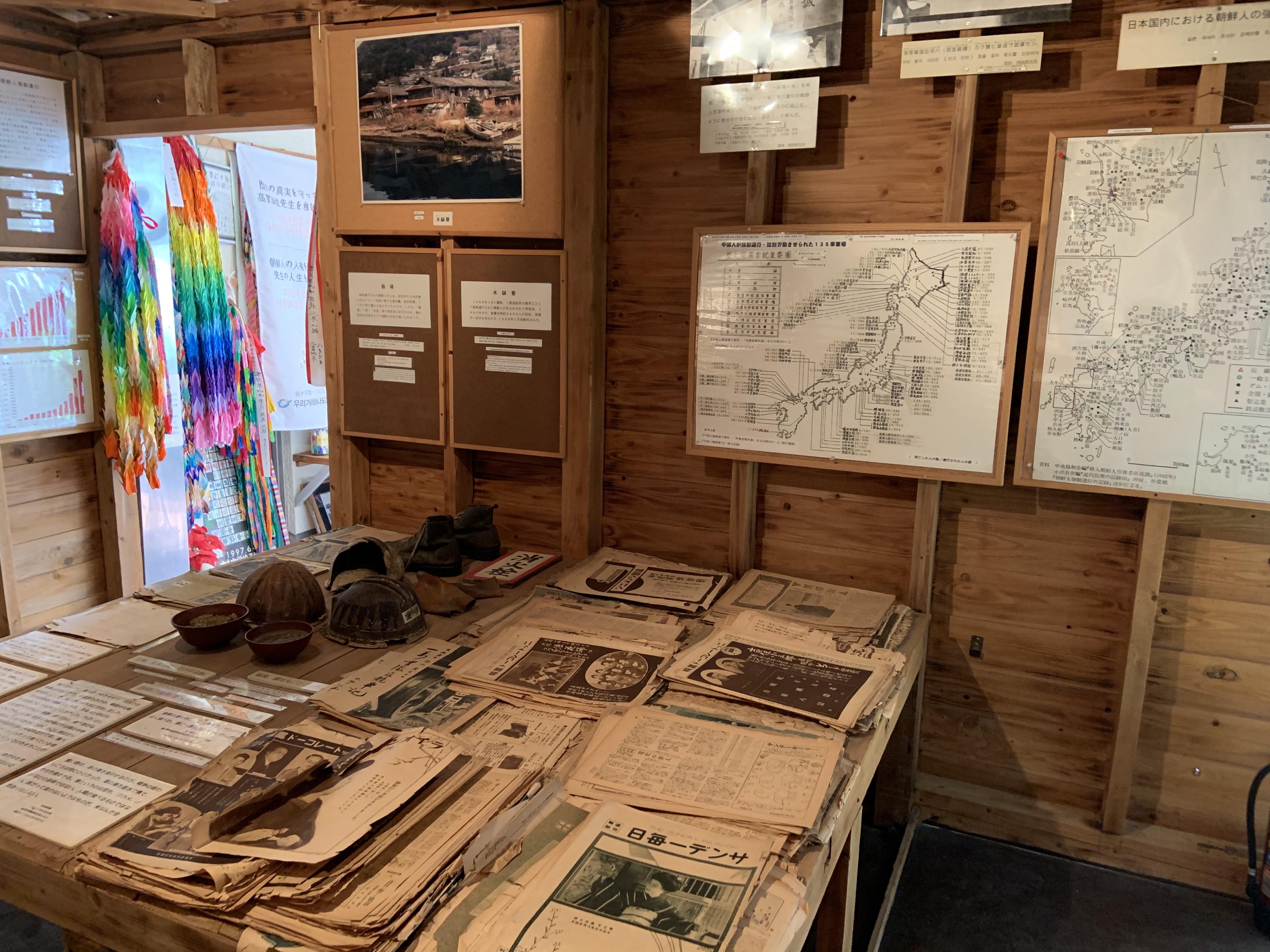
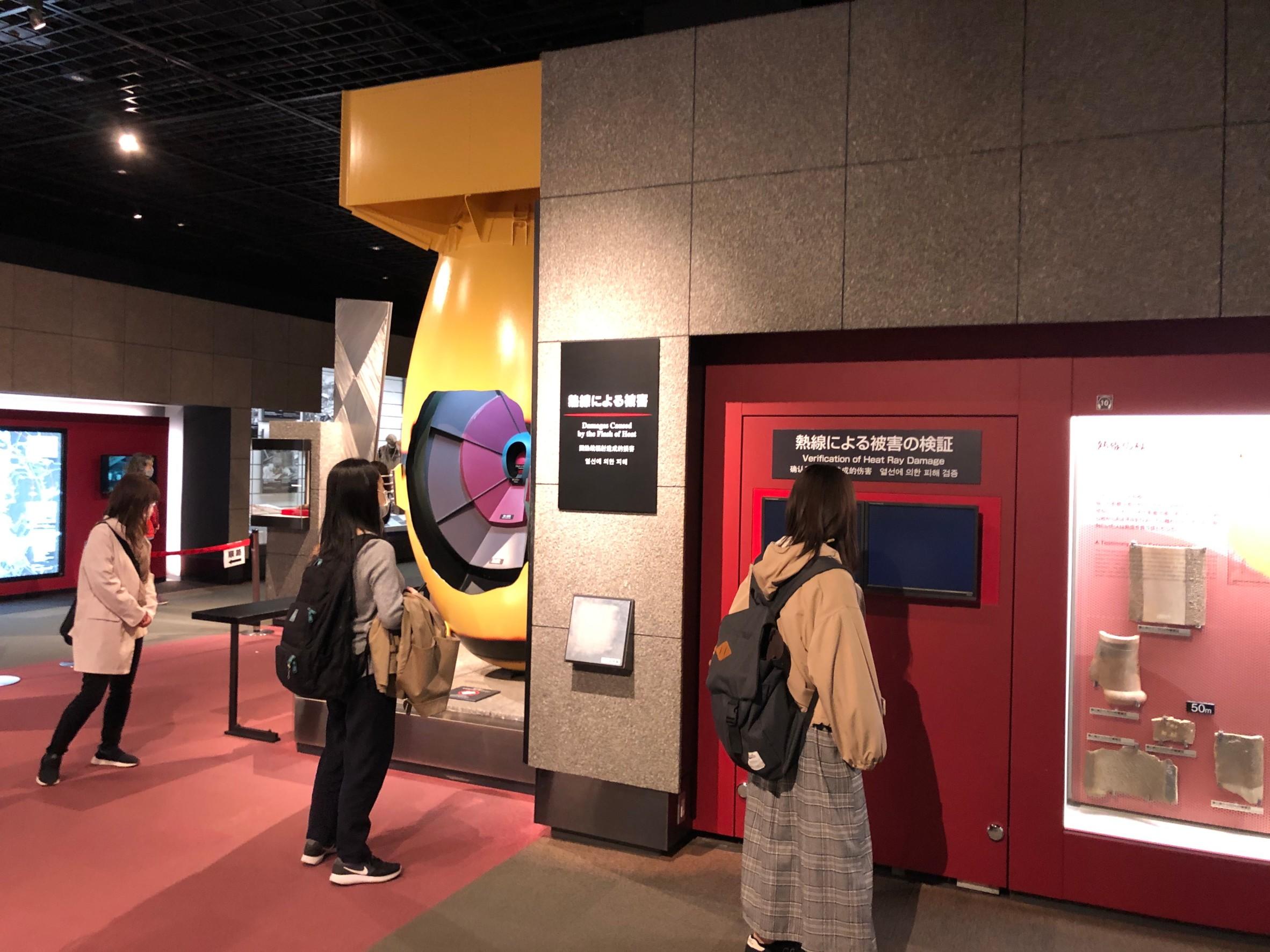
The Asia Christian Education Fund (ACEF)
The people at the ACEF office trusted us and entrusted us with various activities, and it was great that we were able to work independently with a sense of responsibility. I was especially impressed by the crowdfunding campaign to raise funds for the microfinance project, which I was involved in from start to finish. I was also happy to hear that they actually started providing loans to the local people with the funds raised in early February, which made me feel that my activities were connecting to the local people. In the process of learning about service-learning, attitude and positionality in the general education service-learning class, and practicing it through community service-learning, I was able to do more intensive activities. The service activities at ACEF made me realize how many preconceived notions and assumptions I had about developing countries. Although I was aware of ACEF's spirit of "collaboration" and had been paying close attention to it, I often found myself still harboring preconceived notions in discussions with ACEF members and in having our student volunteers' work corrected. However, I believe that I have gradually become more aware of my own assumptions and more critical of things through my year-long activities. I am still inexperienced and sometimes make mistakes, but I will continue to "reflect" on myself not only through ACEF activities but also in various other places, and I hope to gradually become free from the assumptions I have.
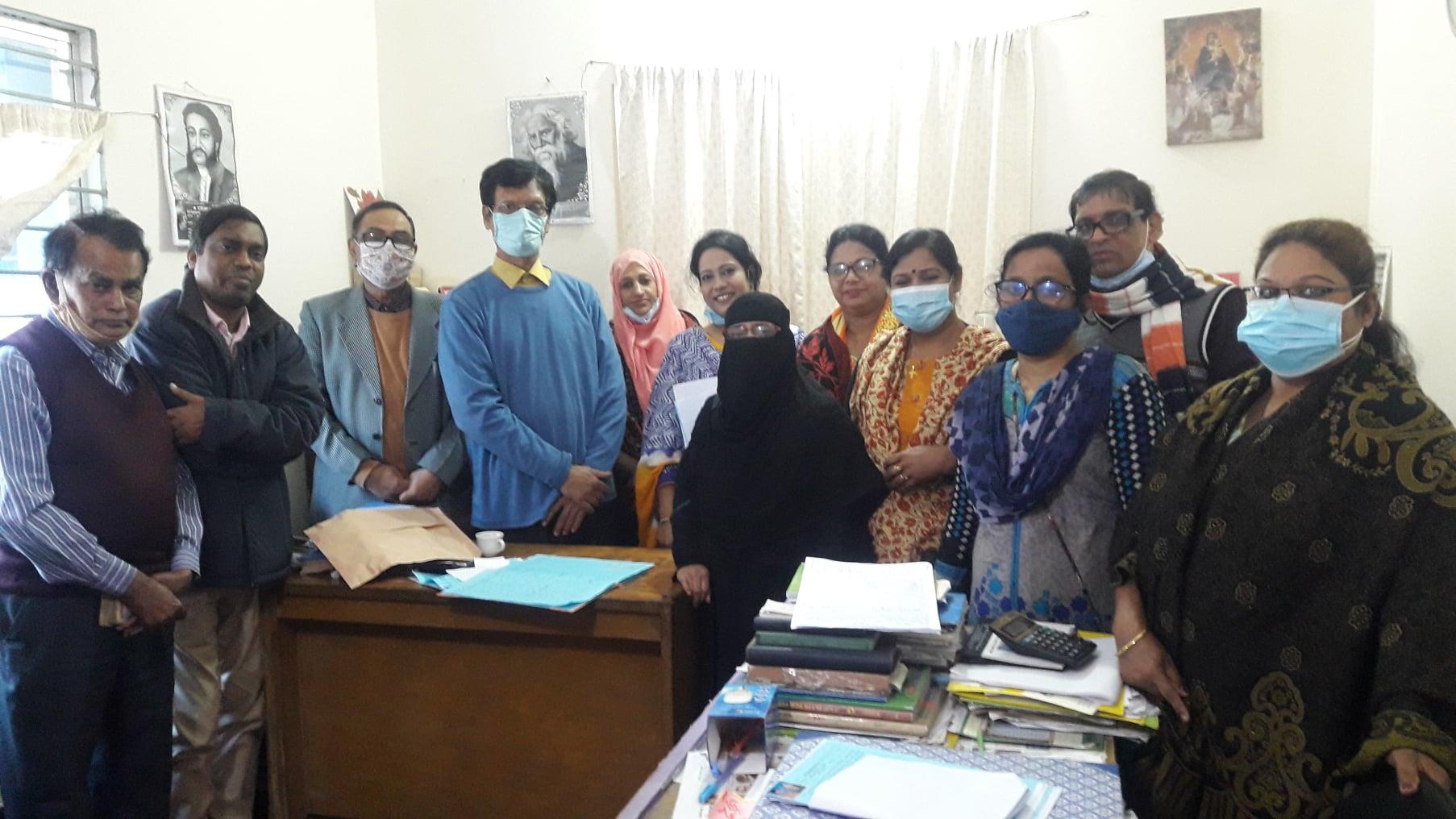
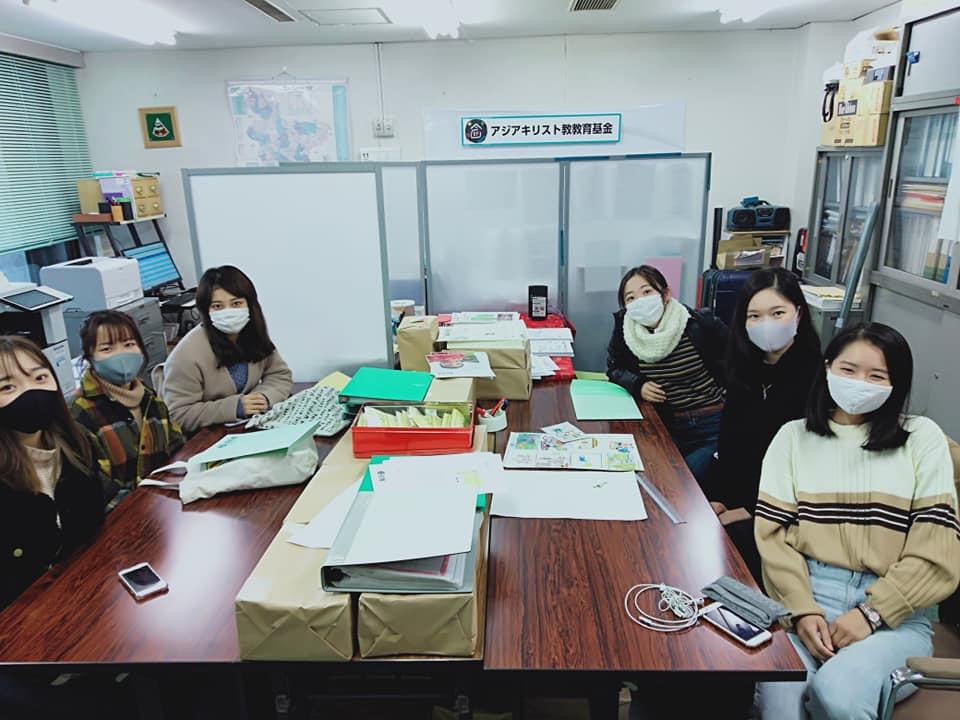
ICU Peace Reserch Institute
It was a great experience to be able to hold three peace events online. We were able to develop events that fit the new lifestyle of the Corona related crisis. It was great to finally see what I had envisioned for five months take shape. When we held the first lecture, the number of participants was less than we expected and we were disappointed, but we discussed how we could attract more participants and started a strategy to convey the appeal of the event to the outside world by focusing on publicity. In the third and final event, we were able to develop it into a big event with more than 40 participants. There were many difficulties in organizing this online peace event, but with the cooperation of the staff of the ICU Peace Research Institute and the SL students, we were able to make it a success. Unlike part-time jobs or volunteer work, service-learning is an opportunity to have such a valuable experience that allows you to have your own positionality and questions in conducting activities, to reflect on your actions and perspectives, and to have critical thinking. Through SL activities, I was able to realize the importance of not only looking at the big picture in peacebuilding, but also to cast my gaze down to the peace around me, and I was able to grow one step. After completing my SL activities, I continued to work as a volunteer staff at the ICU Peace Research Institute. In addition, I decided to do an internship at a non-profit organization that specializes in conflict prevention measures because I wanted to experience more peace activities and acquire practical skills.
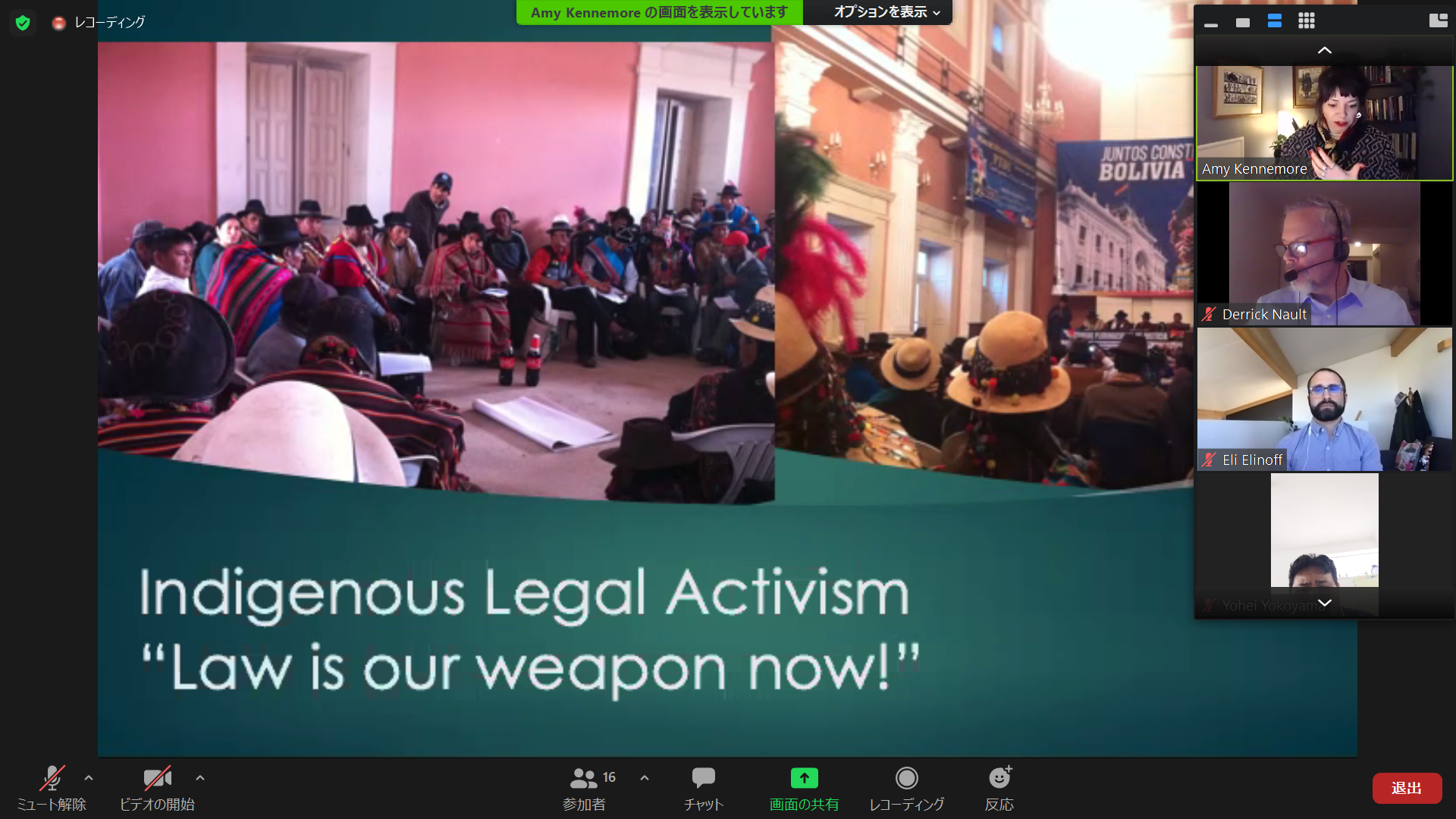
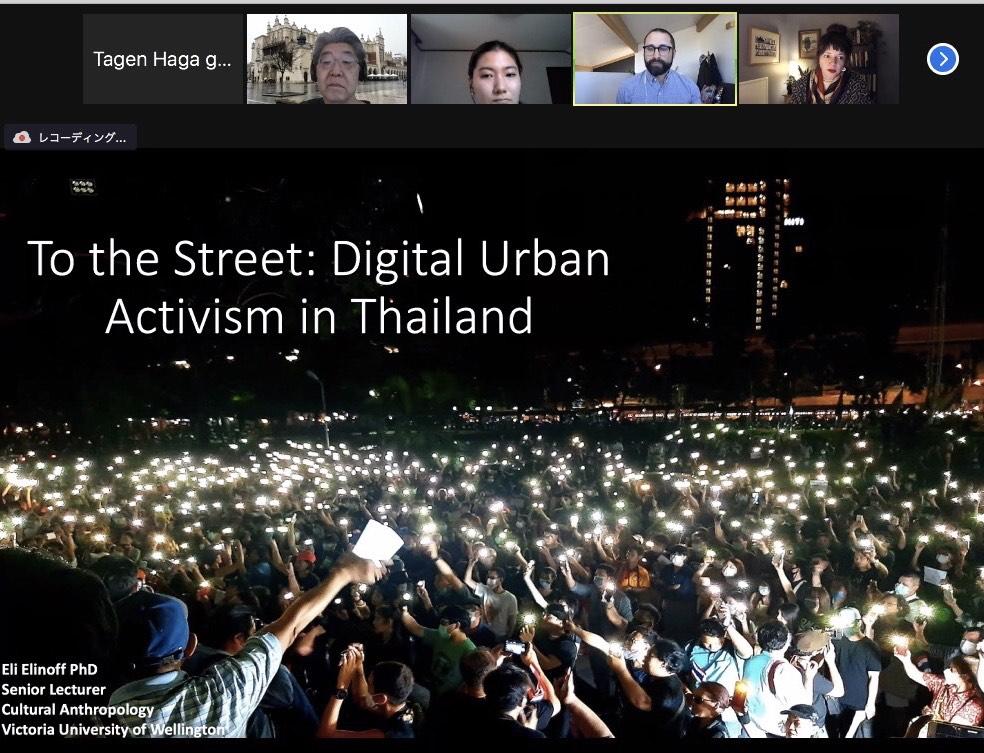
PV Owner Network, Japan (PV-Net)
I feel that the awareness-raising activities on social networking sites, which is the main part of this SL activity, has led to my personal growth very much, and I also feel that it has had a positive impact on the organization. Due to the short duration of the activity, I was not able to actually manage the SNS, but I came up with various ideas on how to manage the SNS and what kind of contents to post, considering various segmentations such as who to communicate to and how to influence them. We also created a template for a proposal so that we can continue to operate the site in the long term, and made a 10-minute video about global warming to post on YouTube. I did not have a wealth of knowledge about global warming and had never edited a video before, so I was worried, but I managed to complete the project. The most memorable part was discussing with the staff about Japanese NGOs, such as the philosophy and organizational structure of PV-Net, the causes and solutions to the problems they are facing. We also discussed the current impact and value of their activities, as well as the problems facing NGOs in Japanese society as a whole. I remember that we talked about the importance of finding a way for NGOs to survive in Japanese society in a way that suits that society.
Youtube URL
https://youtu.be/jrjFfpRVk9A
Fairtrade Labal Japan
I was impressed by the fact that the people I worked with were thinking and acting quite creatively with limited funds. The people I worked with were very strategic in their activities, such as collaborating with stakeholders and fundraising, which completely changed the image I had of NPOs. I also got the impression that they were flexible as an organization, as the staff members actively took in the opinions of young people and agreed with their suggestions. I was also impressed by their ability to think hard about how they could move forward and to take action even under the unique circumstances of a declared state of emergency. In the case of my activities, I was not given a task to do, but rather had to make my own proposals and plans, which were then approved and carried out. It was a little difficult at first because I had to figure out what I could do and what I should do, but I learned a lot from the process, so I think it ended up being beneficial for me. Also, because I was working remotely due to the COVID-19 crisis, it took a lot of time to communicate and it was difficult to grasp the atmosphere of the place where I was working. After conducting SL activity in the society, I realized that the perception I had when I was studying at a desk and the reality were slightly different, and I was able to encounter knowledge and new issues that I had only encountered in the field.
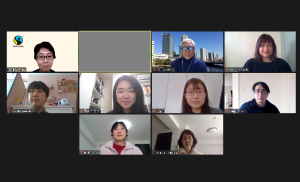
Kamikatsu Zero Waste Center
It was very novel to have so many experiences that I could not have imagined in Tokyo. The population of Kamikatsu Town is very small, so when I told them about my areas of interest, they immediately connected me with other people, saying things like, "Then you should talk to this person.” I think it was a valuable experience for me to meet people who were approaching environmental issues from different directions, and to actually listen to their stories and see their work. I mainly worked at Kamikatsu Zero Waste Center, focusing on the garbage station and Kurukuru Shop. I also met people who were working on fashion upcycling, which I was interested in, and they showed me their work sites. Since this is an area that specializes in the environment, I learned a lot from the people who were approaching it from various angles, including food, clothing, and shelter. The thing that impressed me most in the service activities was that not all of the residents of Kamikatsu Town agreed with the fact that Kamikatsu Town is getting a lot of attention for being at the forefront of environmental initiatives in Japan. For a town with a very small population and depopulation, I thought the media coverage and recognition would be a plus, but I learned that some residents want to live quietly.
